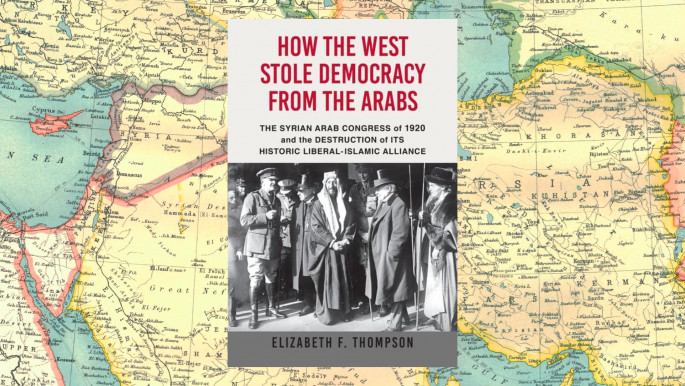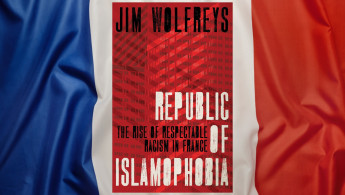Republic of Islamophobia: The Rise of Respectable Racism in France
France has a storied history in this regard and a particularly toxic reaction to visible signifiers of 'Islamic otherness' in dress, dietary habits and public displays of worship.
For many of its intellectuals "there is a problem with Islam in France." This near universal social consensus was taken advantage of by President Emmanuel Macron in recent weeks with his comments about "Islam being in crisis" and the fight against "political Islam" - a problem that is to be confronted by draconian measures and will result in state-sponsored Islamophobia.
These controversies and extreme policy interventions have a long, dishonourable history in which the misinterpretation of Islam and mistreatment of Arab Muslims has been an implicit feature of French culture.
In this book, Jim Wolfreys, a senior lecturer in French and European Politics at King's College, examines the causes and consequences of state-fuelled discrimination and argues that "Islamophobia is at the heart of France's political agenda".
He details the historical, political and cultural dynamics that led to the institutionalisation of discrimination against Muslims in France and assesses these relationships in light of the 'War on Terror', authoritarian neoliberalism and republican secularism.
 |
The book details the historical, political and cultural dynamics that led to the institutionalisation of discrimination against Muslims in France |  |
He notes that the rise and normalisation of Islamophobic sentiment in contemporary France is rooted in colonialism and racism and sustained by social insecurities and the inability to address issues of social inequality.
The author provides context to the bitter current debates about the alleged separatism of Muslims by tracing the history of hostility and desire for domination that goes back to the nineteenth century French colonial occupation of North Africa.
These entrenched negative attitudes stem from unresolved grievances around the immigration of Algerians, Moroccans and Tunisians who settled in large numbers in France after the violent independence struggles of the 1960s.
 |
|
| Read more from TNA's Book Club: How the West Stole Democracy from the Arabs |
While the country lost its imperial territories, it developed amnesia about its brutal colonial legacies, and French society appears to have held on to its 'civilising mission' in the way it treats its Muslim citizens.
This neo-colonial outlook and resultant demonisation of Arabs has been explored extensively in works such as The French Intifada: The Long war between France and its Arabs and continues to contaminate interactions between the majority and ethnic minority communities.
Wolfreys documents modern flashpoints between the French state and Muslims through their 'provocative' acts of public religiosity over the last thirty years beginning with the "Headscarf Affair" of 1989. State intervention in the sartorial choices of female Muslims continued with the prohibition of hijabs in public schools in 2005, and in 2011, it outlawed the niqab (the full face-veil) in public places.
A temporary 'Burkini ban' in beaches came into force in 2016 because these acts were said to violate the French tradition of secularism – laïcité, a quasi-sacred value that purports to separate state and church. In practice, laïcité gives racism a respectable veneer and simultaneously subjects Muslims to unique scrutiny and tacitly demands their invisibility.
The overarching argument of the book crystallises into the fact that Islamophobia and xenophobia have been used by state actors and supported by an increasingly populist media. Anti-Muslim animus has been embedded within the dominant culture through writers and attention-seeking 'neo-reactionary' intellectuals such as Alain Finkielkraut, Éric Zemmour and billionaires like Élisabeth Badinter and Vincent Bolloré, who are regularly given public platforms to discharge their prejudice.
 |
The rise and normalisation of Islamophobia in contemporary France is rooted in colonialism and racism and sustained by social insecurities and the inability to address inequality |  |
Badinter, for instance, in 2016 declared that "We should not be afraid of being cast as Islamophobes." A similarly prejudicial comment about Judaism is unlikely to have been made today in a nation that has a comparably troubled history with its Jewish population.
Though originally instrumentalised by the far-right Front National, Islamophobia has proved to be an election winning strategy for parties across the political spectrum. A tactic that former President Nicolas Sarkozy applied numerous times during his tenure and who went as far as stating that "we have too many foreigners" – a cruelly ironic claim given that he himself is the son of a Hungarian immigrant.
This observation explains why Macron, presently besieged by the extent of his unpopularity, is mimicking the Front National's position on Islam. Wolfreys observes that the rising popularity of right-wing sentiment is further normalised by a deepening political crisis in which Muslims and other minorities are scapegoated for economic problems such as structural unemployment and widening social inequalities rather than then the poor policy decisions made by successive governments.
 |
|
| Read more from TNA's Book Club: The Hundred Years' War on Palestine by Rashid Khalidi |
This also distracts from a deeper problem of the crisis of French identity and the decline of its global influence.
The author also chides the French Left for practicing its own forms of Islamophobia and recalls the attempt by the Nouveau Parti Anticapitaliste (New Anticapitalist Party) to propose a hijab-wearing candidate in 2010; Ilham Moussaïd withdrew after she encountered as much opposition from the Left as she did from the political mainstream.
This book makes for a forceful distinction between the understandable fear of terrorism and fear of the adherents of Islam. It calls for a deep reflection on how public discourses about Muslims are poisoned by racism and the legacy of colonialism. It provides a persuasive analysis of French secularism and contextualises the ongoing crisis in France and its Muslim citizens.
It also links this history with the failure of neoliberalism since the financial crash of 2008 and exposes the gap between the proclaimed ideals of liberté, égalité, fraternité and the hostile treatment of its ethnic minorities. It is among the best works on the subject and is a highly relevant read given the global rise of Islamophobia and unfolding events in a state with the largest population of Muslims in Europe.
Dr Sadek Hamid is an academic who has written widely about British Muslims. He is the author of 'Sufis, Salafis and Islamists: The Contested Ground of British Islamic Activism' and is co-author of 'British Muslims: New Directions in Islamic Thought, Creativity and Activism'.
Follow him on Twitter: @sadekhamid
The New Arab Book Club: Click on our Special Contents tab to read more book reviews and interviews with authors:
 |
|



